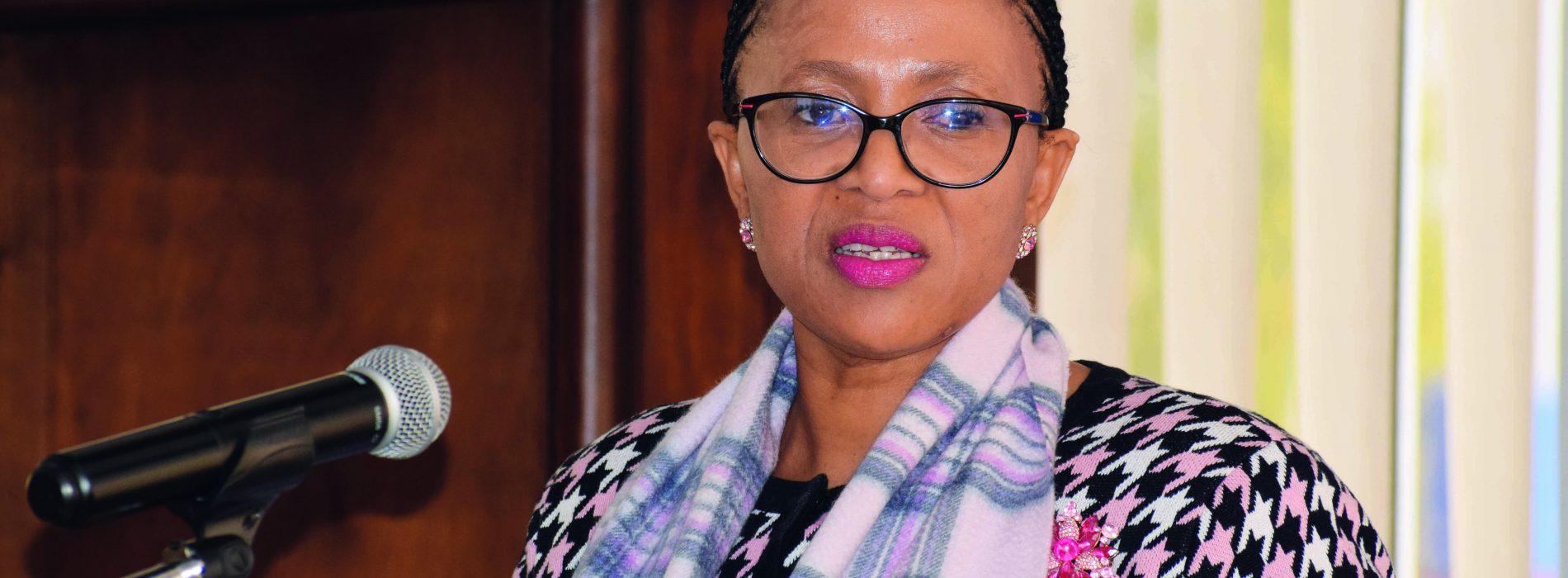Africa-Press – Lesotho. THE absence of a development bank is seriously inhibiting access to finance for Small Medium and Micro Enterprises (SMMES) in the country. It is also stalling economic growth as SMMES are said to be the engine of the economy.
This was said at the Second Annual Financial Inclusion Day on Tuesday which was hosted by the Central Bank of Lesotho. The event ran under the theme, Engineering Financial Inclusion for Basotho.
Speakers at the event said there is need for innovative, sustainable and affordable products to finance SMMES, create jobs and increase financial inclusion rates. It was said that a big chunk of SMMEs remain financially excluded due to lack of products that answer their needs.
Molefi Leqhaoe, the Lesotho Post Bank boss, said banks should advise entrepreneurs to get personal debt, explore venture capitalist route and business angels in order to fund their businesses because banks do not have a big appetite to finance SMMES.
Leqhaoe said SMMEs are burdened by several challenges like lack of credit history, inadequate or unavailable collateral and poor credit rating, making it difficult for commercial banks to fund them.
“Loans issued to SMMEs are little and do not make business sense,” Leqhaoe said.
He said other contributing factors include un-bankable business plans, inadequate skills for bank staff to understand business ideas, the unstable political and economic climate.
The CEO of Basotho Enterprise Development Corporation (BEDCO), Pesha Shale, said most SMMES do not see value in banking with formal financial institutions.
Shale said the general view is that such institutions have not only failed to develop products that address their needs but also failed to assist them in their moment of need.
“Another issue is that of high administration costs that erode their little savings,” Shale said. He added that entrepreneurs also say that the banks tend to steal their business ideas and give them to those who have money or implement them.
Shale said banks also do not view SMMEs worthy as they bring little business and profits but require more time and intense administrative work. The World Bank representative, Dave Grace, said SMMEs run to Micro Finance Institutions (MFIs) for funding purposes because of ease of access.
However, the high interest rates placed on loans hinder the growth of SMMES. He said MFIs issue loans based on a person’s salary and that results in little credit being issued to SMMES.
Grace proposed that the financial sector should start to view the SMME sector as one with lots of potential and create products that answer their needs and are affordable.
“Making loans based on collateral is a bad idea for SMMES. Rather issue loans based on cash flow performance and minimise requirements such as educational qualifications in order to get a loan,” Grace said.
He said about a third of Savings and Credit Cooperative Societies (SACCOs) are issuing loans to SMMES. He said due to minimum red tape in the way of accessing finance SACCOS are quickly becoming a preferable source of SMME funding.
Grace said it is possible to grow the SMME sector with the assistance of financial institutions and it is only when they come together that the sector can create more jobs and grow the economy.
The Senior Information Specialist at Finmark Trust, Orbed Maposa, said in Africa SMMEs are largely informal and fragmented. Maposa said there is a need to formalise the sector.
He however said the benefits of doing so do not appeal to the sector as yet. He said taxation, business registration and rental costs are amongst fears inhibiting the formalisation of SMMEs.
He said benefits of formalisation should be clear to encourage SMMEs to get formalised. The governor of the Central Bank of Lesotho, Dr Retšelisitsoe Matlanyane, said SMMEs should be given breathing room to grow before burdening them with tax.
“Like a new tomato plant let them bloom and they will give us long term benefits,” Dr Matlayane said. She proposed that there should be clear set taxation threshold for SMMEs to allow them to grow.
It was mentioned that even though there are still pending challenges Lesotho has improved greatly when it comes to financial inclusion. According to the 2016 the Finscope MSME Survey, about 49 percent of business owners in Lesotho reported access to finance as the leading obstacle in starting a business.
Thirty-five percent of owners reported access to finance was limiting their operations while 20 percent attributed it to inhibiting growth. Further analysis showed that only two percent of businesses access credit from the commercial banking sector.
The survey indicated that about two-thirds of business owners are financially included while 35 percent of business owners (28 000) are financially excluded, that is they do not use any financial products or services (neither formal nor informal) to manage their business finances. Only 41 percent (31 0000) of business owners are banked and 12 percent (9 000) have other formal non-bank products and services.






